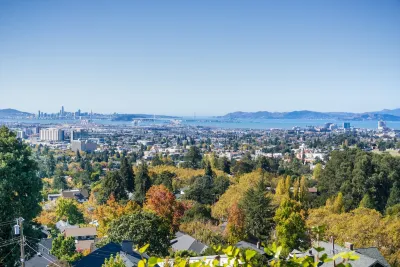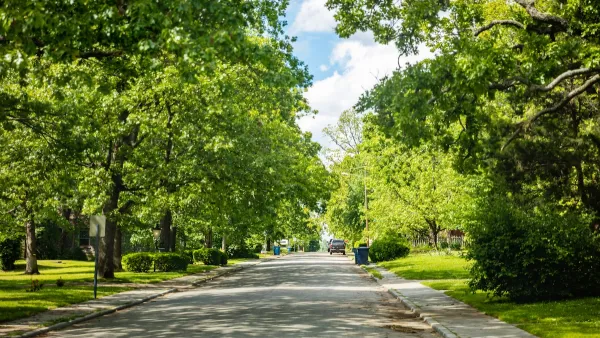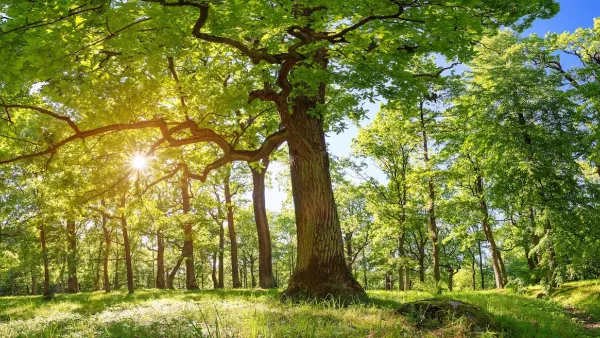The Oakland City Council has adopted its first Urban Forest Plan, a 50-year roadmap focused on equitable tree care, canopy preservation, and environmental justice to benefit underserved communities.

The Oakland City Council has unanimously approved the city’s first Urban Forest Plan, marking a historic commitment to the care, maintenance, and equitable growth of Oakland’s urban forest. The Plan, a 50-year roadmap, aims to preserve the city’s 68,000 public trees, increase tree canopy coverage, and address disparities in tree distribution. Developed with significant community input, the Plan aligns with Oakland’s Equitable Climate Action Plan and General Plan, emphasizing the importance of environmental justice. Key initiatives include tree maintenance, planting in underserved communities, updating ordinances, and fostering public-private partnerships to create green jobs and educational opportunities.
Oakland’s tree canopy, although more expansive than in many neighboring cities, has been declining and is unequally distributed, with frontline communities disproportionately affected. To address this, the Plan prioritizes tree planting in areas burdened by pollution, identified through CalEnviroScreen, and establishes an implementation team to secure funding and oversee its execution. A $1 million CAL FIRE grant supported the Plan’s creation, which included a Tree Canopy and Landcover Assessment, public engagement, and the planting of 700 trees in underserved neighborhoods. Nearly 2,500 residents contributed feedback to shape the Plan’s equitable vision.
With $8 million in USDA Forest Service funding secured through the Inflation Reduction Act, Oakland is set to implement key elements of the Plan over the next four years, including tree pruning and planting in priority areas. Public Works Director Josh Rowan highlighted the urgency of resuming proactive tree care, halted since the 2008 recession, to ensure cost-effective and sustainable urban forest management. The Plan not only addresses immediate environmental concerns but also positions Oakland to pursue additional funding opportunities for long-term ecological and public health benefits.
FULL STORY: Oakland City Council Unanimously Adopts the City’s First Urban Forest Plan

National Parks Layoffs Will Cause Communities to Lose Billions
Thousands of essential park workers were laid off this week, just before the busy spring break season.

Retro-silient?: America’s First “Eco-burb,” The Woodlands Turns 50
A master-planned community north of Houston offers lessons on green infrastructure and resilient design, but falls short of its founder’s lofty affordability and walkability goals.

Delivering for America Plan Will Downgrade Mail Service in at Least 49.5 Percent of Zip Codes
Republican and Democrat lawmakers criticize the plan for its disproportionate negative impact on rural communities.

Test News Post 1
This is a summary

Test News Headline 46
Test for the image on the front page.

Balancing Bombs and Butterflies: How the National Guard Protects a Rare Species
The National Guard at Fort Indiantown Gap uses GIS technology and land management strategies to balance military training with conservation efforts, ensuring the survival of the rare eastern regal fritillary butterfly.
Urban Design for Planners 1: Software Tools
This six-course series explores essential urban design concepts using open source software and equips planners with the tools they need to participate fully in the urban design process.
Planning for Universal Design
Learn the tools for implementing Universal Design in planning regulations.
EMC Planning Group, Inc.
Planetizen
Planetizen
Mpact (formerly Rail~Volution)
Great Falls Development Authority, Inc.
HUDs Office of Policy Development and Research
NYU Wagner Graduate School of Public Service





























